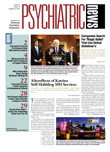As physicians and other health care professionals expand their presence on the Internet, consideration of the following points may be helpful. This is not meant to be an exclusive or exhaustive list of factors to consider.
Confidentiality
Patient information must be kept confidential. There is more to de-identifying information than deleting a name. A study published in the October 2008 Journal of General Internal Medicine reviewed 271 medical blogs and found that 45 provided sufficient information for patients to identify their doctors or themselves.
Consequences for breaches of confidentiality could include, but are not limited to, one or more of the following: discipline by your licensing board, a civil lawsuit, and governmental enforcement action (such as by the Office for Civil Rights, the federal agency responsible for enforcing HIPAA's Privacy Rule).
Do not comment about cases, lawsuits, or administrative actions in which you are involved. Doing so can compromise your defense and make an otherwise winnable case indefensible.
Be aware of APA's Opinions of the Ethics Committee on the Principles of Medical Ethics, Section Q.4.a, which discusses publication of a casebook and disguising of identity. Although the opinion notes that obtaining the patient's informed consent for publication of the case is one option, the nature of the psychiatrist-patient relationship may place undue pressure on the patient to agree to the psychiatrist's request.
Treatment Relationships
Avoid inadvertently creating a treatment relationship with your Internet readers. Keep in mind that it is the perception of the reader that matters, not the intention of the physician. Make it clear that no treatment relationship with the reader exists, do not post anything that could be perceived to be treatment advice, and clarify that nothing on the site is intended to be medical advice.
Publishing general educational information about a disease or treatment usually is not viewed legally as being “medical advice.” However, making suggestions to a person about what his or her diagnosis is or treatment should be is almost always considered “medical advice” and may establish a treatment relationship.
Public Forums
Be aware that you are responsible for all content that you publish and, if you have your own blog, everything that appears on it. Carefully consider the permissions you will give to others with regard to posting content or comments. Ideally, no one but you should be able to publish posts or write comments that appear on your blog.
If others are allowed to write on your blog, be sure that you can and will review all writings before they appear and that they are not misleading or in violation of your ethical or legal obligations. Remember that since you are responsible for all content, all content is held to your standards. For example, even nonphysician contributors should not be allowed to publish patient information on your blog.
Remember that even if no one else can write on your blog, it is still a public forum, and you are responsible for the content. If your intent is to present a fictional story, that should be clear to the readers. AMA Ethics Opinion 5.027 states, “Physicians responsible for the health-related content of an online site should ensure that the information is accurate, timely, reliable, and scientifically sound, and includes appropriate scientific references.”
AMA Ethics Opinion 5.027 also discusses conflicts of interest. Generally, any potential conflicts should be disclosed. Refer to the opinion for more information.
Physician Anonymity
Do not assume that you are anonymous, even if you have taken steps to disguise your identity. Because blogs are accessible to such a large population, the ways in which your identity may be discovered increase exponentially, and the amount of detail required for someone to identify you decreases exponentially.
Bottom line: assume that everything you write will be seen by your patients and by the opposing side in any claim, lawsuit, or administrative action.
Other Resources
•
Federation of State Medical Boards' “Model Guidelines for the Appropriate Use of the Internet in Medical Practice,” posted at<www.fsmb.org/pdf/2002_grpol_Use_of_Internet.pdf>
•
Health on the Net Foundation's HONCode, posted at<www.hon.ch/HONcode/Pro/Conduct.html>
Participants in the Psychiatrists' Program, the APA-endorsed Psychiatrists' Professional Liability Insurance Program, managed by PRMS Inc., may access additional valuable resources such as detailed articles and tips on topics of interest and phone consultations through the Risk Management Consultation Helpline at (800) 527-9181 from 8:30 a.m. to 5:30 p.m. Eastern time.
This column is provided by PRMS, manager of the Psychiatrists' Program, for the benefit of members. More information about the Program is available by visiting its Web site at<www.psychprogram.com>; calling (800) 245-3333, ext. 389; or sending an e-mail to [email protected].▪
